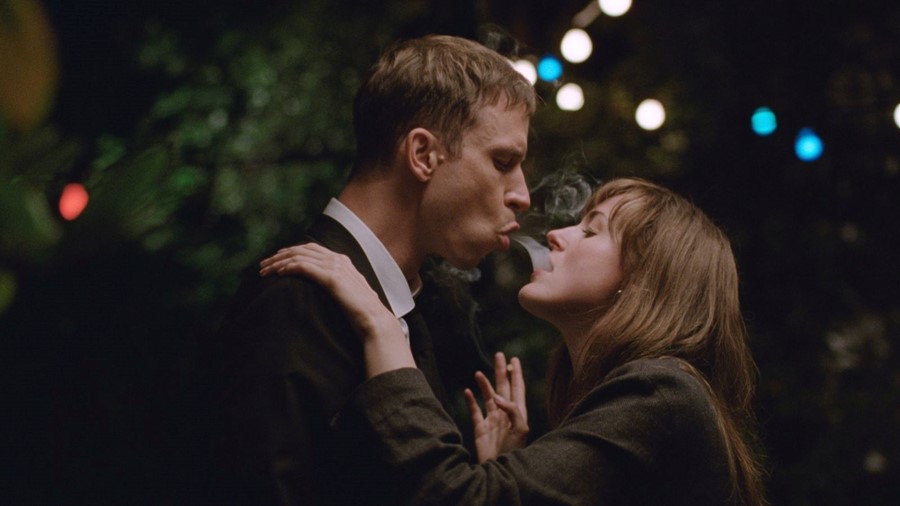From Joachim Trier’s Oscar-nominated The Worst Person in the World to Joanna Hogg’s deeply personal follow-up to The Souvenir, here are the ten best independent films of 2022
The most moving films released this year were interested in relationships in all their complexity, whether looking at the real-life marriage of two volcanologists in Fire of Love, queer love in the time of Section 28 in Blue Jean, or the nostalgic exploration of a half-remembered family holiday in Aftersun. In a world that’s rebuilding slowly after the pandemic, a myriad of responses have been made in the minds of independent filmmakers: holding close to us those we love, remembering those we’ve lost, and reevaluating relationships that maybe weren’t what they seemed. These films are all the better for attempting to understand such a nuanced and multifaceted experience.
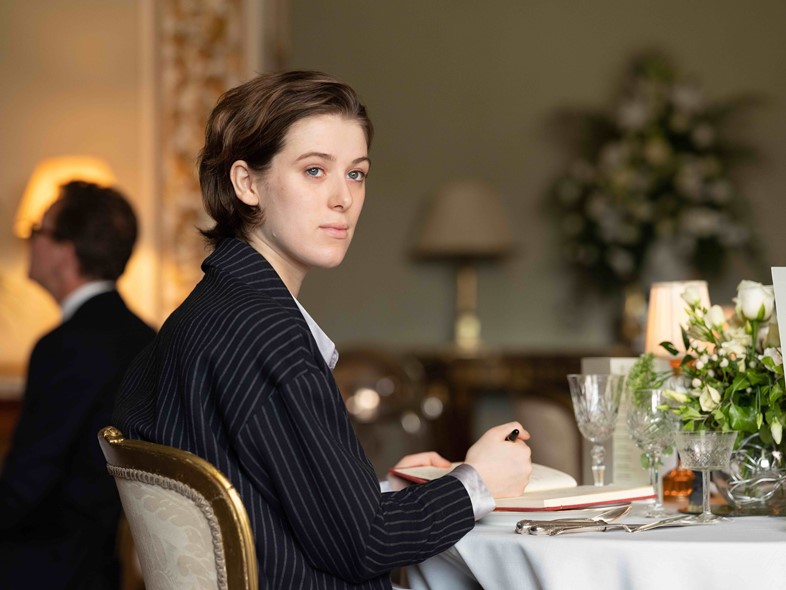
The Souvenir Part II
Director Joanna Hogg sees both this film and its predecessor as being “reactions to each other.” After the events of the previous instalment in The Souvenir’s cinematic universe, film student Julie attempts to process the death of her boyfriend by making a film about their relationship. The detailed close-ups on projectionists’ hands as they carefully splice film reels are emblematic of the film’s enterprise as a whole; it’s a gentle but confident, self-reflexive attempt to process a traumatic experience. For Hogg, the making of this film was a “very powerful space to be in, because it was so reminiscent of somewhere that I knew, and was so faithfully recreated.” One of the standouts is Richard Ayoade playing fellow director Patrick, who re-centres Julie with some dryly delivered observations, as she examines her own past and attempts to rework it.
Read AnOther’s interview with Joanna Hogg here.
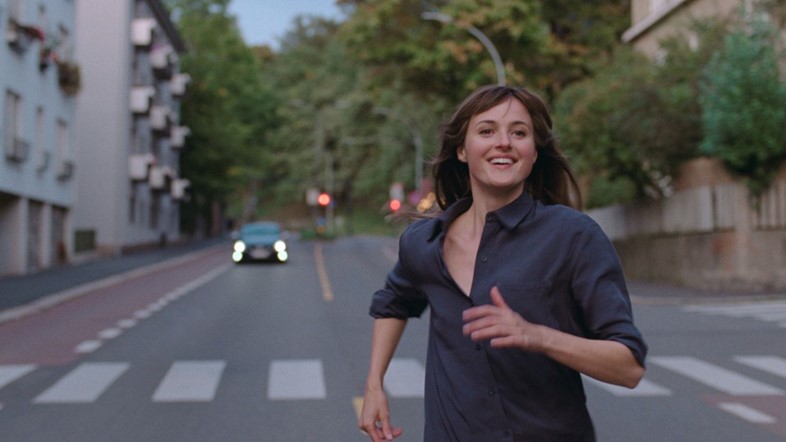
The Worst Person in the World
The third film in Joachim Trier’s ‘Oslo trilogy’ – all of which explore life and relationships in Oslo – introduces Julie, played to award-winning acclaim by Renate Reinsve. Feeling a little bit lost and struggling to settle in either a career or a relationship, Julie is passionate about everything, and as a result finds it hard to commit to anything. Trier hoped this film would “express the drama in the internal life of the people around me ... and that can be terribly difficult. And also terribly funny.” A staple in Trier’s films, Anders Danielsen Lie has a lead role as Julie’s boyfriend, who is a controversial comic book writer and tragic figure. He becomes the emotional fulcrum for Julie’s journey to becoming her most authentic self; she evokes Trier’s sentiment that “all the characters, in a way, are trying to live up to something. But ultimately, it’s hopeful.”
Read AnOther’s interview with Joachim Trier here.
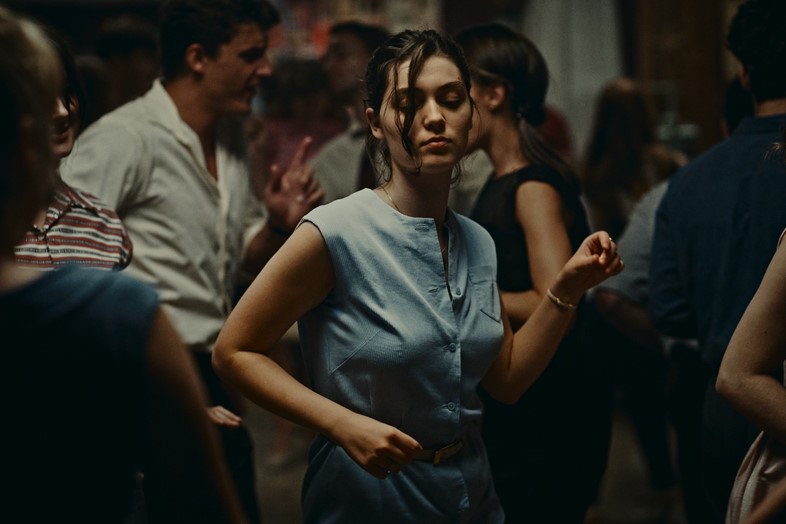
Happening
Thanks to the US Supreme Court overturning the historic Roe v Wade ruling earlier this year, never has a film been more prescient than Audrey Diwan’s adaptation of the autobiographical novel by Annie Ernaux. “So many intimate questions are actually related to politics,” Diwan told AnOther, and the film explores exactly that: the harrowing effect that the political landscape of France in 1963 has on Anne, a student who accidentally becomes pregnant and spends most of the film attempting to obtain an illegal abortion. It unfolds like a horror film, with the protagonist becoming more isolated and desperate as her pregnancy progresses due to the increasingly challenging nature of carrying out the procedure. The lead performance is astoundingly haunting, with Anamaria Vartolomei’s face telegraphing the vast array of emotions she is experiencing, from determination to hopelessness.
Read AnOther’s interview with Audrey Diwan here.
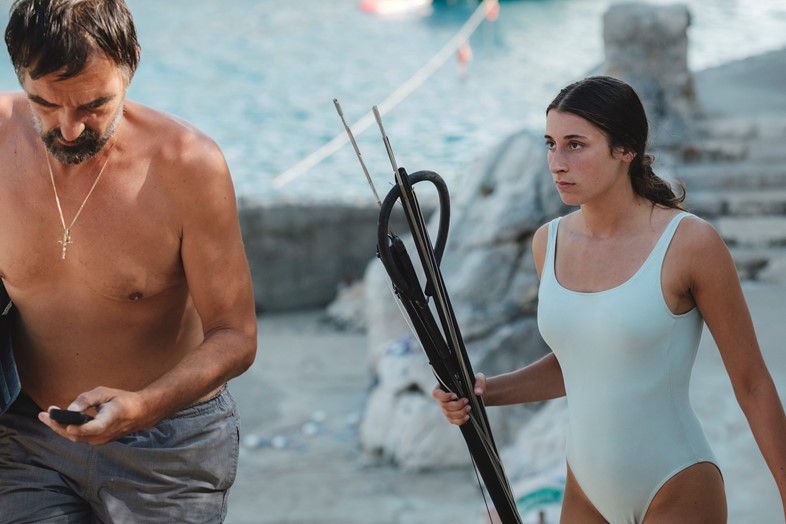
Murina
Speaking about her connection to her character Julija, Gracija Filipović – the breakout star of the Croatian feature Murina – noticed that “the first thing I felt was her deep connection with nature, and the sea especially.” In Antoneta Alamat Kusijanović’s film, The titular eel that Julija hunts forms a symbolic figure for her quest to emancipate herself from her strict and abusive father, Ante. Their relationship is remarkably complex, with a note-perfect performance from Leon Lučev as a self-serving, manipulative narcissist. This conflict comes to a head when wealthy American property developer Javier, played by the inimitable Cliff Curtis, comes to inspect some land that Ante owns. Julija, constantly fighting for a way out, sees an opportunity for freedom and begins a desperate seduction, sending this coming-of-age drama in a sinister and unexpected direction.
Read AnOther’s interview with actor Gracija Filipović here.
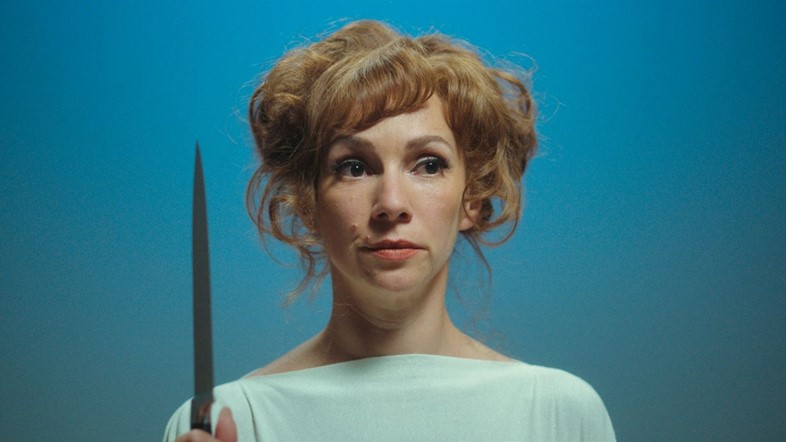
Flux Gourmet
Peter Strickland’s previous films are characterised by a very specific form of surrealism, and his latest feature is no different, except for the fact that it’s based on his own experience as part of a niche artistic collective engaged in the craft of “sonic food”. The film satirises the idea of artistic patronage while also demonstrating a very sincere love of the thing it mocks, namely, collaborating towards a common creative goal, with all the agony that accompanies the endeavour. Strickland told AnOther that the film is “about looking back on one’s younger days, discovering creativity and everything that entails.” This is, of course, underscored by Strickland’s hallmarks, with disturbing imagery, comedy that verges on slapstick, and a heavy dose of flatulence.
Read AnOther’s interview with Peter Strickland here.
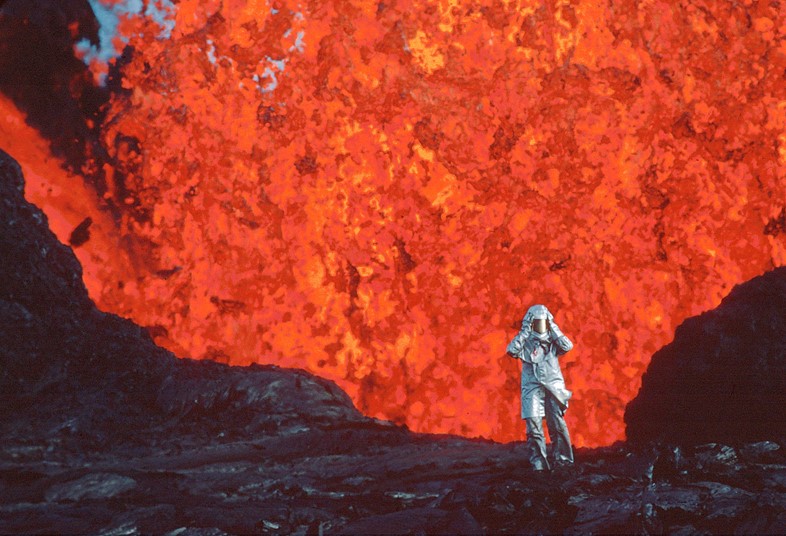
Fire of Love
Sara Dosa’s documentary celebrates the marriage and work of groundbreaking volcanologists Katia and Maurice Krafft, capturing their life as a cinematographic marvel. “Love isn’t necessarily gazing deeply into your lover’s eyes. It’s two people standing side by side gazing at the same thing,” she told AnOther, paraphrasing the French writer Antoine de Saint-Exupéry in an attempt to verbalise the couple’s remarkable love. By combing through hundreds of hours of archival footage, Dosa created a narrative that is equal parts comedic, tragic, but most of all, romantic. The film is almost as unusual as the central couple, even featuring certain volcanoes in the opening credits, recognising how the Kraffts viewed the geological features almost as sentient beings, worthy of their acknowledgement. As Miranda July’s husky and ornate narration suggests, “understanding is love’s other name”, and the Kraffts spent their entire lives trying to understand the mystery of Earth’s crust.
Read AnOther’s interview with Sara Dosa here.
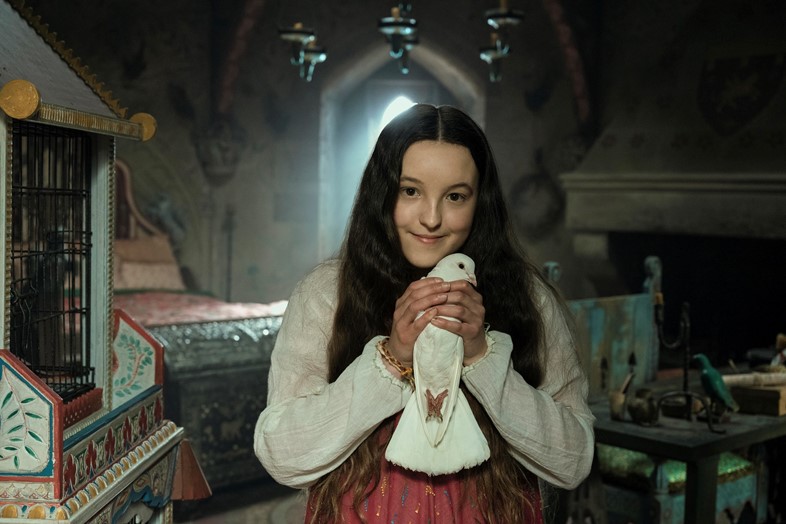
Catherine Called Birdy
Lena Dunham’s adaptation of this popular YA coming-of-age novel is a departure from her more provocative works, such as HBO’s Girls or Sharp Stick. But it shares what Dunham calls her “passion for thorny or bratty or unlikeable or complicated women, women who behave badly” in its titular heroine, played by the charismatic Bella Ramsey. As Birdy critically eyes the antics of her family and friends, she journeys toward adulthood in a way that’s handled with tenderness and humour. The supporting cast is a goldmine; Andrew Scott (the ‘hot priest’ from Fleabag), is wonderful as her spendthrift father who attempts to marry Birdy off to save his dire financial situation, and Joe Alwyn as her brother, George, is an affecting and comforting presence.
Read AnOther’s interview with Lena Dunham here.
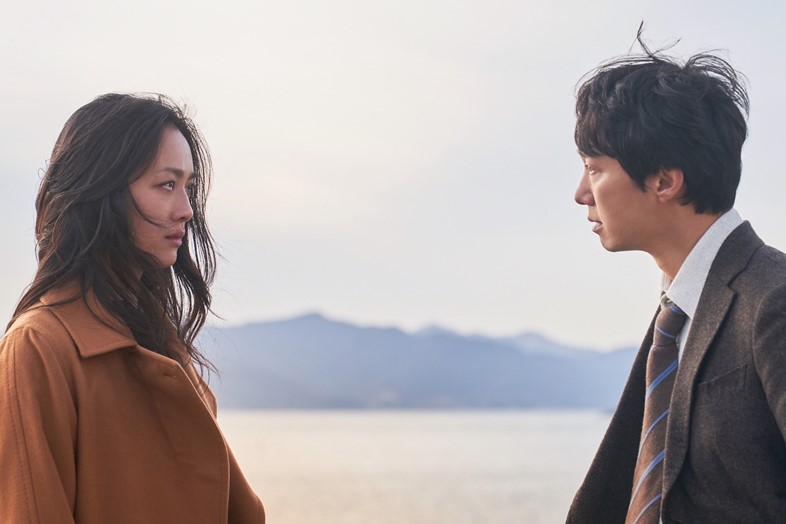
Decision to Leave
Park Chan-wook’s first film in six years garnered him the Best Director Award at Cannes, a well-earned recognition for a self-professed perfectionist. Speaking about his process to AnOther, Chan-wook noted, “I am quite obsessive about all the details in my films and making sure that my film is as perfect as possible.” His meticulous approach is apparent throughout, with stylish and breathtaking cinematography, and a closely crafted and densely layered mystery at the centre. Although it’s ostensibly about a murder investigation, the film becomes so much more than its Hitchcockian premise, heightened by the strength of its two respectively enigmatic and world-weary leads, Tang Wei and Park Hae-il. It’s also a deeply Romantic film, with a capital R; obsessed with the sublime and terrifying power of nature, and the suffering inherent to urban living.
Read AnOther’s interview with Park Chan-wook here.
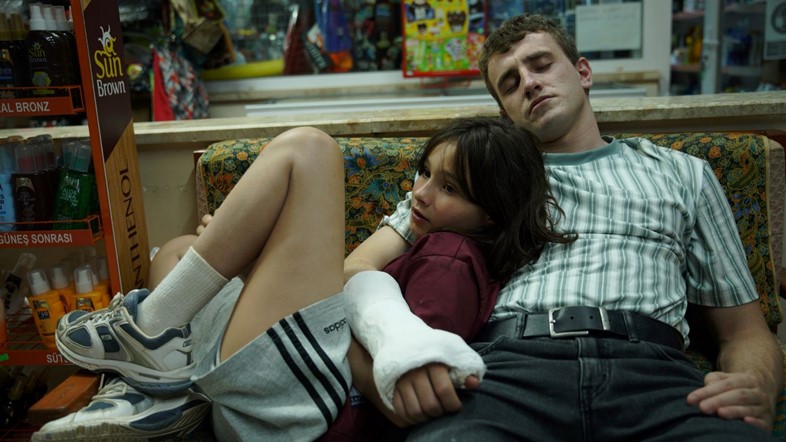
Aftersun
Already the recipient of numerous accolades after breaking out at Cannes, this deeply vulnerable debut from Charlotte Wells explores a week in 11-year-old Sophie’s life, in which the protagonist and her father Calum take a trip to a holiday resort in Turkey. Calum is an idealistic but loving figure, viewed predominantly through camcorder footage shot by Sophie that she revisits as an adult. Over the course of the holiday, (which takes place in the 1990s, with a soundtrack to match) Calum slowly starts to buckle under the weight of being a young father, and other untold pressures that Wells chooses to let us imagine, by telling the story through young Sophie’s eyes. Although a semi-autobiographical exploration of Wells’ own childhood, the enterprise of filtering through the nostalgic haze to find the reality of a memory feels universal.
Read AnOther’s interview with Charlotte Wells here.
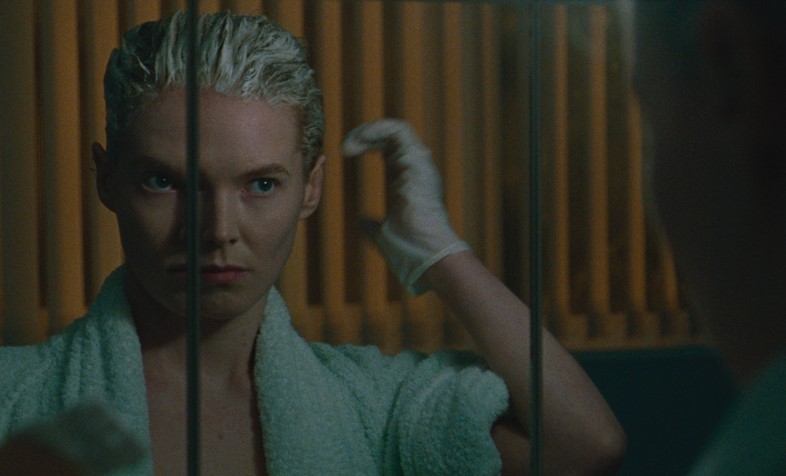
Blue Jean
Rosy McEwen, who plays the titular Jean in this character study of a lesbian PE teacher in 1980s Newcastle, told AnOther that performing such an interior character was “way more tiring than having a big old cry, because getting everything out is cathartic.” This sentiment perfectly captures the experience that Jean has in the film; she has to perform placidity while becoming a little more internally scarred each time she hides her authentic self. There’s nothing explicitly cathartic about Blue Jean, in that it still ends with Section 28 waging war on the lives of queer people working in the education sector, but it manages to celebrate their identity and community in a beautiful, heartfelt way, without compromising the harrowing experience of navigating queer life in Thatcherite Britain.
Read AnOther’s interview with Georgia Oakley here.
